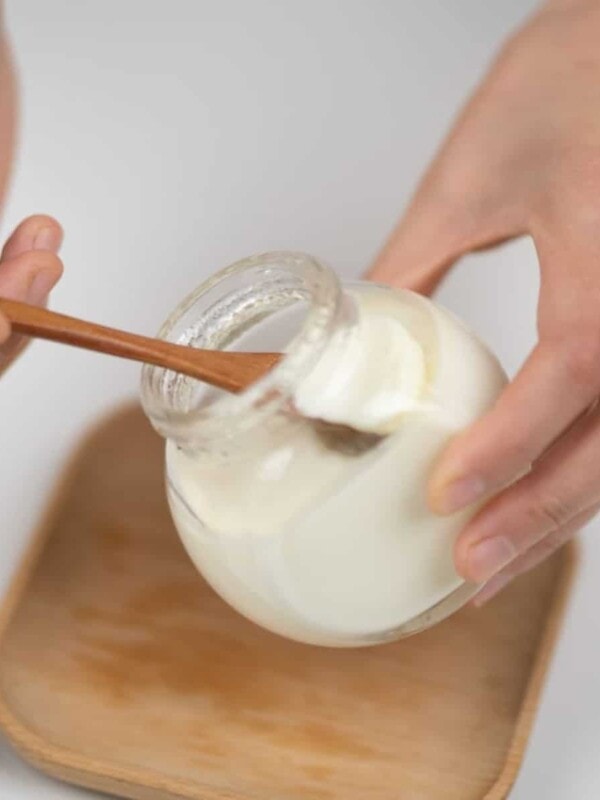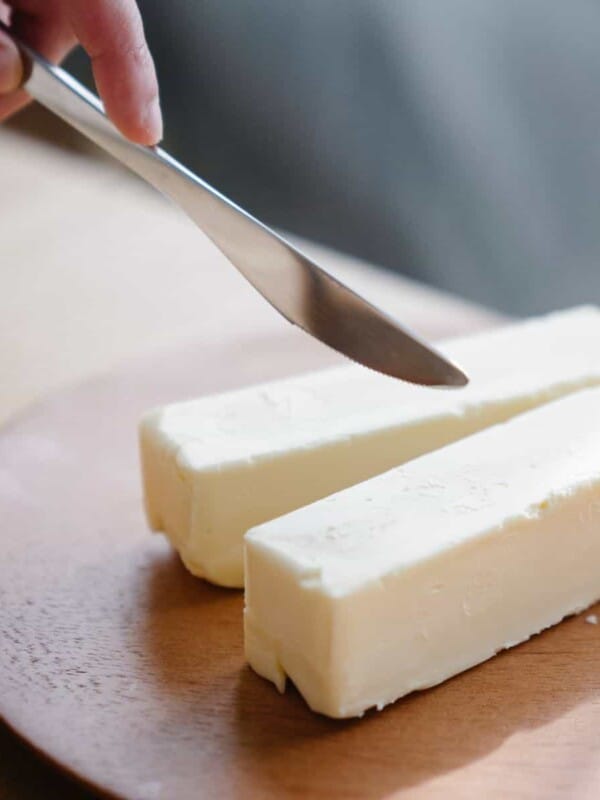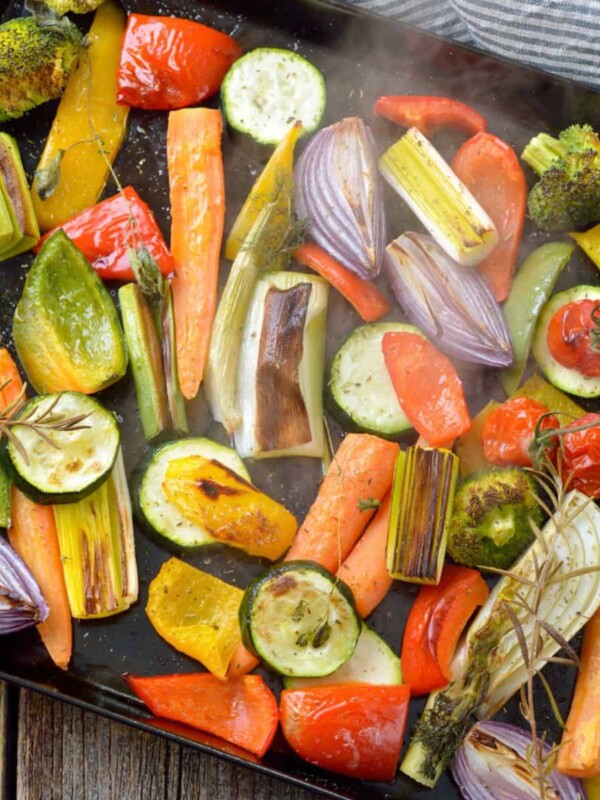This post may contain affiliate links. Please read our disclosure policy.
Mushrooms are a delicious and nutritious addition to any meal, and they can make a great meat substitute. They’re also simple to prepare. However, in order to get the best flavor and texture from your mushrooms, you must learn how to clean and store them.
A Versatile Ingredient

We all know that mushrooms, while delicious, are a little pricey and go bad quickly, so if we can preserve them for a longer period of time, we will be able to use them in various recipes in our kitchen.
Because mushrooms contain a lot of water, it is best not to soak them in water; otherwise, the dish you intend to make will be very watery.
And because mushrooms grow in the earth and have a lot of mud stuck to them, it’s critical that you clean mushrooms properly before cooking them. Here’s how to clean and store your mushrooms correctly, starting with how to choose them at the market.
What Are Mushrooms
Mushrooms are members of the fungi kingdom; they regenerate on their own via spore germination, which is similar to how plants seed. However, unlike plants and animals, they do not require food or light to grow; rather, they digest the nutrients they secrete.
There are thousands of different mushroom species, with the most important distinction being whether they are edible or poisonous. Mushrooms that are commonly used include button mushrooms, cremini mushrooms, and portobello mushrooms.
How to Choose Mushrooms
When buying mushrooms at your local farmers’ market or grocery store, make sure they are plump and free of dark spots. They should be mostly dry and free of any slimy coating, which indicates that the mushrooms have gone bad.
But don’t bother looking for the “cleanest” whole mushrooms at the store; just because one carton of mushrooms has a little more dirt than another doesn’t mean there’s anything wrong with them.
How to Store Mushrooms
The way mushrooms are most likely packaged at the grocery store is not the best way to store them at home.
The best way to store mushrooms is to place them in a paper bag, or in a box or bowl with a towel draped over the top. Allow for airflow without drying them out, and never store them in plastic containers since this hastens decay by creating a humid environment.
A paper towel in the paper bag or on top of the box or bowl will absorb excess moisture from the mushrooms, keeping them dry and preventing the development of slime.
To allow proper airflow, keep your mushrooms loosely packed and not tightly packed, and use the crisper drawer of your refrigerator.
Some Health Benefits of Mushrooms
Here are the top health benefits of mushrooms:
- Mushrooms are one of the few non-animal sources of vitamin D.
- They contain immune-modulating nutrients.
- They may be beneficial for the management of neurodegenerative conditions.
- They may be useful in maintaining heart health.
- They may support gut health.
Trim the Stems
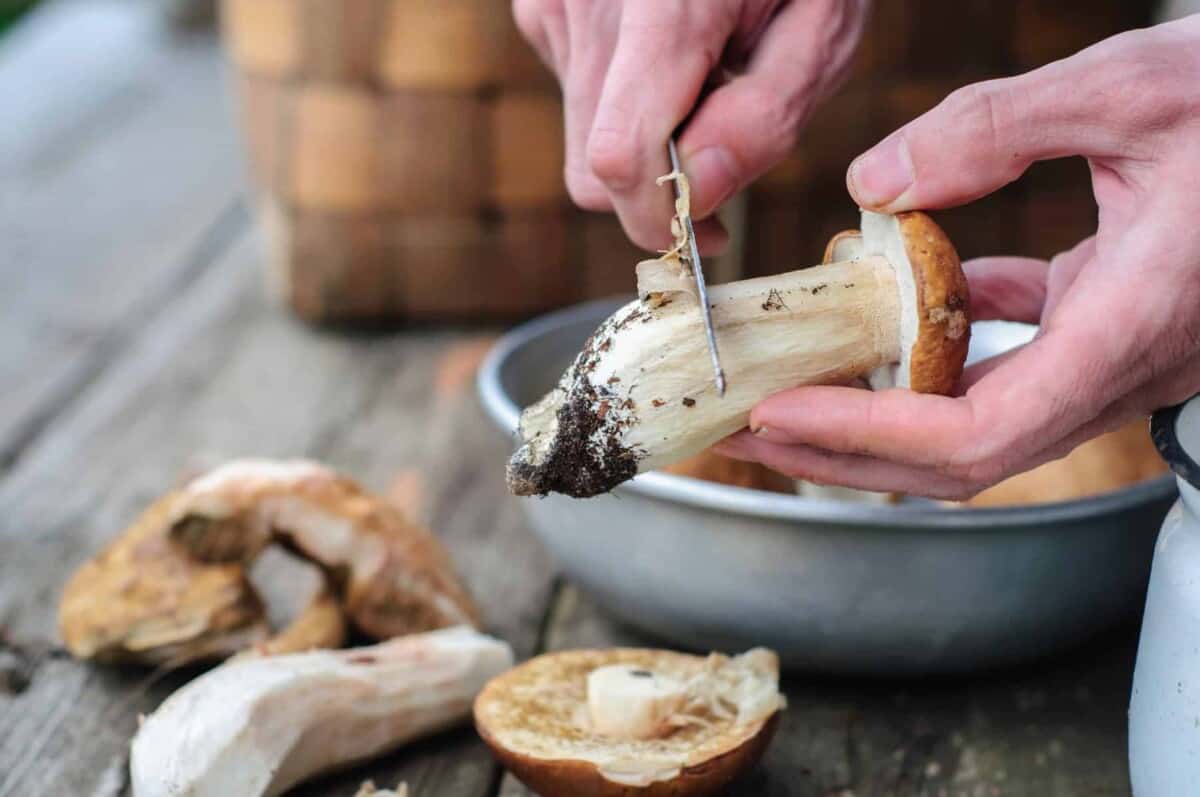
How to Clean Mushrooms
First Method
Rinse whole mushrooms in a colander or salad spinner under running water to remove dirt specks. If using a salad spinner to dry them, spin them or pat them dry with a paper towel.
Second Method
To remove visible dirt, wipe mushrooms with a damp paper towel, a clean dishcloth, or a mushroom brush instead of rinsing them under running water.
Enhance the Flavor of Your Dishes
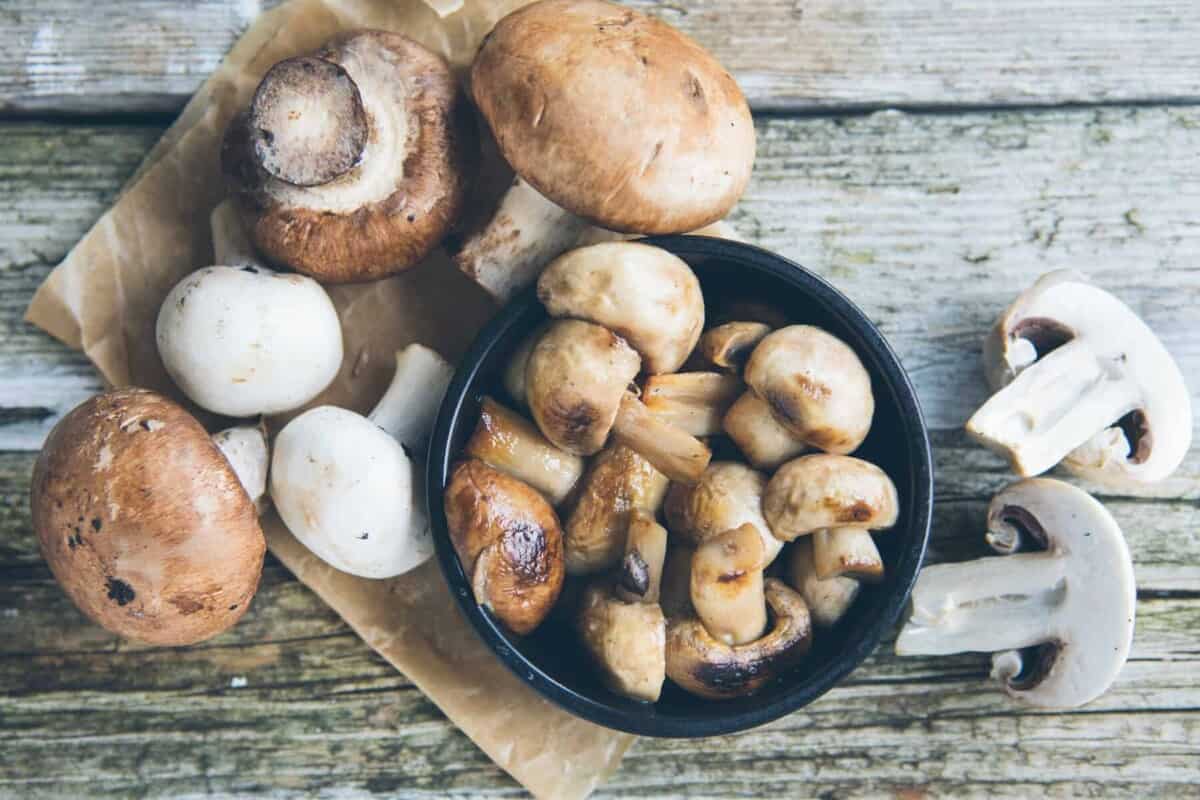
Frequently Asked Questions (FAQs):
You can leave the stems on the button and cremini (baby bella) mushrooms, but you can trim them shorter if the ends feel hard and tough. The stems of portobello and shiitake mushrooms are too tough to eat, so remove them before slicing/cooking.
Sliced mushrooms will most likely have less dirt than whole mushrooms. Even so, I like to give them a quick wipe down or rinse, followed by a thorough patting dry, before cooking. However, don’t wash them and then refrigerate them. Use them as soon as possible.
Yes, they are edible, but if you’re going to stuff the caps, they’ll likely get in the way and have an unpleasant taste, so they’re usually scooped out.
A mushroom brush is a specialty kitchen tool designed to remove dirt while being gentle on the mushroom’s surface. Some people find it useful, but if the salad spinner and paper-damp towel methods work for you, there’s no need to buy it.
A mushroom brush is a low-cost kitchen tool used to clean mushrooms and other delicate foods. The bristles are typically made of a synthetic material such as nylon, but natural bristles are also available. The bristles will be very soft so that they do not scrape or gouge the mushroom’s skin.
Tips and Tricks
If you rinse your mushrooms, make sure to thoroughly dry them. Also, keep in mind that not all mushrooms are created equal. Some mushrooms, such as enoki, oyster, and morel, will require a little more care to clean.
Most mushrooms require the same cleaning procedure, but some, such as morel mushrooms, require extra attention. Morels should be cut in half and rinsed briefly in cool water. Once they’re clean, pat them dry with paper towels.
It’s recommended that you store your mushrooms in a paper bag. Although plastic bags are more convenient, condensation can cause the mushrooms to have an unpleasant texture.
One more important tip is to store mushrooms in the refrigerator.
More Recipes to Try:
- Creamy Broccoli & Mushroom Soup
- Chinese Mushroom Chicken over Beef Hotlink Rice
- Sautéed Mushrooms and Onions
- Rotini Crab Stuffed Portabella Mushrooms
- Baked Blackened Salmon
- Easy 15 Minute Sheet Pan Fajitas
- Beef Steak Fajita Bowl with a Kick
- Smoked Cauliflower Steaks Recipe
- Quick Spicy Beef (Sujuk) Pizza
- The Tastiest Philly Cheesesteak Sliders

How to Clean and store Mushrooms
Equipment
- colander or salad spinner or paper towel or mushroom brush
Ingredients
- Mushrooms of any type, except morels
Instructions
First Method
- If the mushrooms are particularly dirty, you can lightly dampen a paper towel (make sure it's not soaking wet) and gently wipe each mushroom. This method is preferable to soaking, as you have more control over the amount of moisture.
Second Method
- The preferred method for cleaning mushrooms is to gently brush off any dirt or debris with a soft brush or a paper towel. Use a gentle, circular motion to remove the dirt without damaging the mushrooms.


